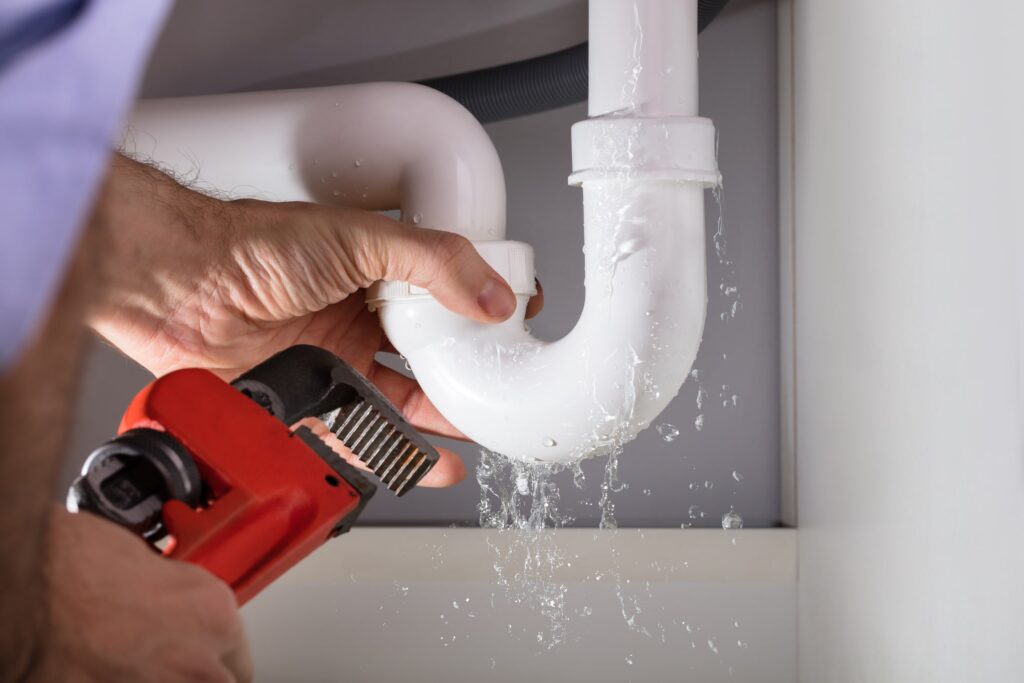If you’re a homeowner, chances are you’ve had to deal with a plumbing problem at some point.
From leaks and clogs to broken pipes, there are a number of issues that can pop up. But the good news is, many of these problems are easy to avoid if you know what to look for.
In this blog post, we’ll go over five of the most common plumbing problems and how you can avoid them.
By following these tips, you can keep your plumbing system in top shape and avoid costly repairs down the road.
Common Plumbing Problems
Leaks
Plumbing leaks are one of the most common problems that homeowners face. While a small leak may not seem like a big deal, it can actually cause a lot of damage over time.
If left unchecked, a plumbing leak can lead to serious water damage, mold growth, and even structural damage to your home.
Leaks can occur anywhere in your plumbing system, but some of the most common places for leaks are in joints and connections, around fixtures, and in pipes. It can also be caused by corrosion, leaks in appliances, and even freezing temperatures.
If you suspect that you have a plumbing leak, it’s important to have it fixed by a professional as soon as possible to prevent further damage to your home.
Clogs
Clogs are one of the most common plumbing problems. They can occur in any type of pipe, including sink drains, tub drains, showers, and toilets.
Clogs are caused by a build-up of hair, soap scum, or other debris. In order to clear a clog, you will need to use a plunger or a plumber’s snake. If you have a clog in your drain, you can try to remove it yourself or you can call a plumber.
However, if you have a clog in your sewer line, you will need to call a plumber. Sewer clogs are caused by tree roots or other objects that have become lodged in the pipe.
Plumbing problems can be frustrating, but there are many ways to solve them. With a little effort, you can usually fix the problem yourself.
Broken Pipes
Broken pipes are one of the most common plumbing problems. They can be caused by a number of factors, including freezing temperatures, workload surges, and tree roots.
Broken pipes can lead to serious water damage, so it is important to take care of the problem as soon as possible.
The first step is to shut off the water supply and call a plumber. Once the plumber arrives, they will assess the situation and determine the best course of action.
In some cases, the pipe can be repaired. However, in other cases, the pipe will need to be replaced. Either way, it is important to get the problem fixed as soon as possible to avoid further damage.
How to Avoid These Plumbing Problems
Tips for Preventing Leaks
- Make sure to check all of your pipes and fixtures regularly for any signs of wear or damage. If you notice any cracks or leaks, be sure to repair them right away.
- Additionally, it’s important to keep an eye on your water bill. If you notice a sudden increase in your usage, it could be an indication of a leak.
- Finally, make sure to have your plumbing system professionally inspected at least once a year.
Tips for Preventing Clogs
- Invest in a drain catch. This will help to capture hair before it has a chance to go down the drain.
- Be sure to use a drain cover when showering. This will help to keep soap scum and other materials from entering the drain.
- Regularly clean your drains with a mixture of baking soda and vinegar. This will help to break up any build-up that has already occurred.
Tips for Preventing Broken Pipes
- Make sure to insulate your pipes, especially those that are exposed to cold air.
- Let your faucets drip during cold weather, as this will help to keep water moving through the pipes and less likely to freeze.
- Be sure to keep an eye on your water bill; if you notice a sudden increase, it could be an indication that a pipe has developed a leak and needs to be repaired.
By following these simple tips, you can help prevent expensive repairs and keep your plumbing system running smoothly all winter long.
The Bottom Line
Even the smallest plumbing problems can turn into a major headache if left untreated. By being proactive and addressing any potential issues as soon as they arise, you can save yourself a lot of time, money, and stress in the long run.
If you’re not sure what to look for or how to fix a particular problem, don’t hesitate to call on a professional plumber for assistance. With just a little bit of prevention, you can avoid some of the most common plumbing headaches altogether.

